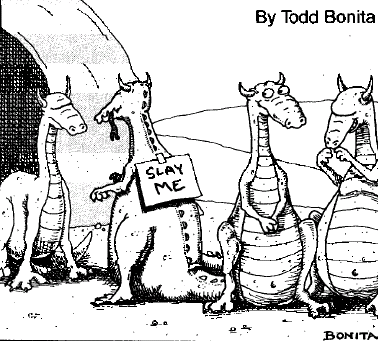I'm glad to see none other than Cory Doctorow agrees with me that THEY are out to eliminate general purpose open computer architectures. I've been harping on that ever since Sony suddenly and arbitrarily revoked the end-user's prior option to put Linux on 'their' new Playstations - and then began enforcing it.
But there is something relatively simple and devastatingly effective that can be done if we are forced to deal with nonsense like SOPA and all the collateral hassles it brings with it.
Stop consuming!If organizations like the RIAA and MPAA are so convinced of the astronomical value of their products that they feel justified in buying draconian and unfair legislation to prevent what are largely fictional losses, the public can respond by saying: "You're right guys! We no longer want nor can afford your product."
And now comes the important part - don't just stop buying commercial books, movies, and music - completely stop
consuming it. Don't borrow it. Don't gift it. Don't bootleg or pirate it. Don't share it. Don't do
anything with it.
Stop going to movies. Stop buying or downloading music and videos. Stop getting books. Just reread the books you already own or have loaded on your e-reader. Stop watching TV and listening to the radio for anything other than the news. Let your Netflix and Hulu+ accounts expire for a while. Tell your cable or satellite providers you no longer want any of their movie channels.
In short - say NO to all commercial entertainment. Just walk away with a "Thanks but no thanks!"
Send a very clear message that don't
need their product. And most importantly, demonstrate you're able and willing to
live without it if you don't like the terms and conditions being offered.
It will probably require about three months before the impact is felt. But when the entertainment and publishing industries suddenly see the revenue streams dwindle to a trickle (no boycott is 100% absolute) -
and no increase in piracy picking up the slack - you'll soon see a change of heart. Especially once it becomes clear to them the government won't dare bail out anything as non-essential as their industry.
Not that Uncle Sam could afford to. Because by this time the government will also be feeling a some pain. No sales means no money for paying employees - or business and sales taxes. Jobs might (will) be lost. Plants might shut down. I can hear the governors of affected States screaming blue murder since their unemployment will be going up and their own tax revenues going down because of it.
Next see if Europe will join in. Encourage the general public in places like the UK, France and Spain to stop consuming
any US entertainment product until the crazy US government gets its head together and stops bullying
their governments into passing similarly insane laws. And then let certain US companies know they will continue to see their products sit on shelves all over Europe until such time as they successfully use their influence to get those same unfair regulations they pushed through overturned.
If it turns into a case of who blinks first, the public has time on its side. None of us will starve or become ill if we can't see a movie, read a book, or listen to a song. But
the industry certainly will if you stop consuming their products.
Hopefully they won't see the light. Hopefully they'll just dig in and try to tough it out long enough to eventually go out of business. Lovely thought - no more 'old school' labels or studios - and no more of their lobbyist groups as a result.
With luck, out of the wreckage will come a new media and publishing industry in which the artists, writers, musicians, and performers - in short, the creatives - are finally control. And in which they're able to keep a greater share of the revenue their work has generated.
One of the first rules of economic efficiency is to eliminate the middlemen whenever it's practical to do so.
I think that time has arrived. It's time for the old way of thinking to go away.
And starving an obsolete industry to death is the surest way of making sure necessary changes get made.

